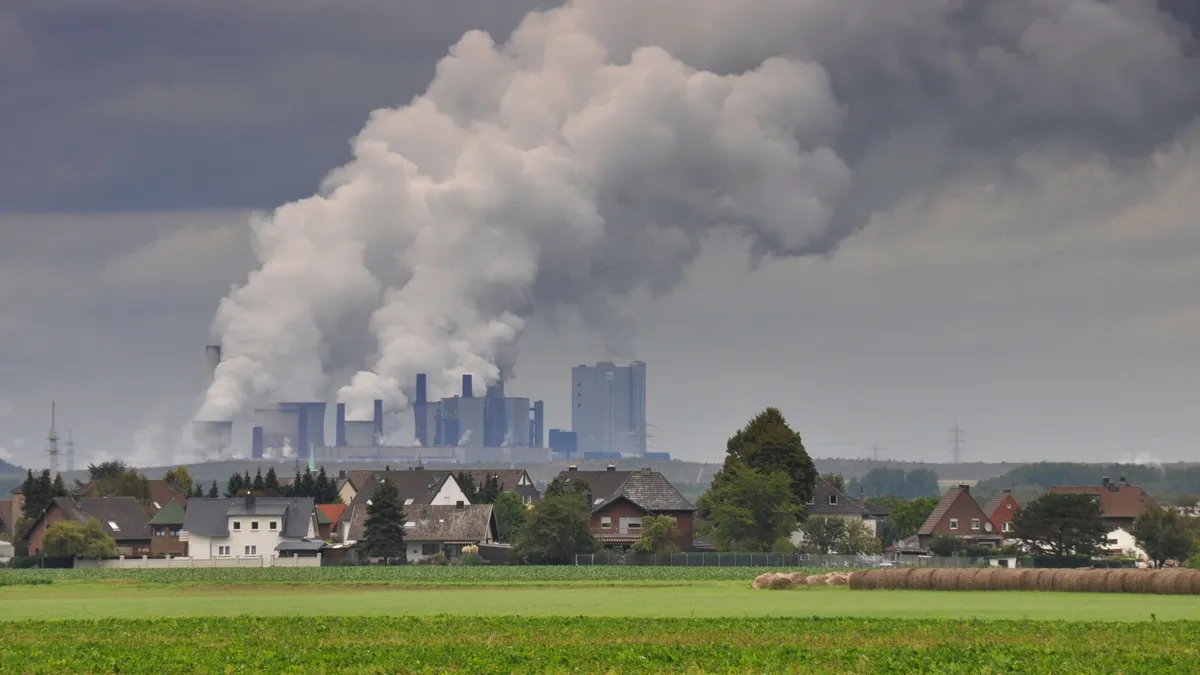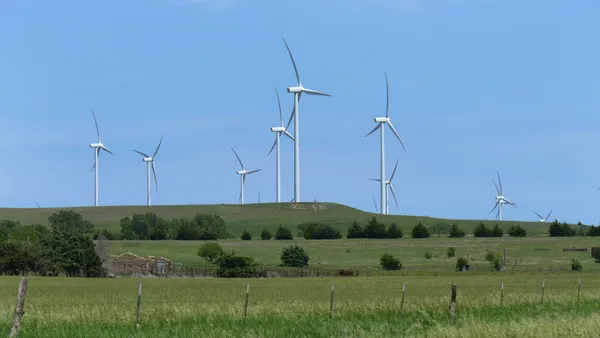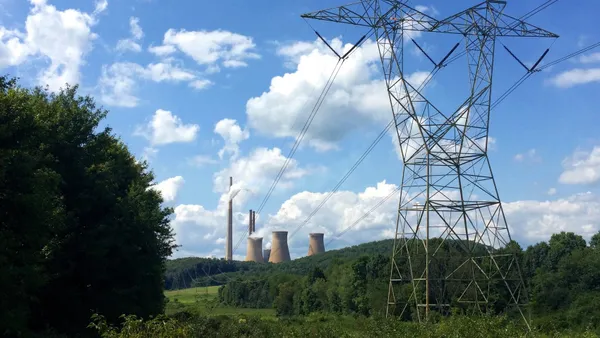Dive Brief:
- The cost of nuclear power has been rising for years, but the Nuclear Energy Institute is looking to reverse the trend and will begin working to cut costs by 30% by 2018, Platts reports.
- The initiative comes amid rising costs for the industry. Cheap gas and low demand growth have pressured nuclear power in recent years, and the price of generating the carbon-free power has increased 28% since 2004.
- The announcement comes as nuclear facilities have been shutting down due to their struggles in competitive markets. Entergy recently announced plans to shutter its Pilgrim plant in Massachusetts and James A. FitzPatrick in New York in the next two years.
Dive Insight:
Financial losses at nuclear power stations are forcing closures, a trend the Nuclear Energy Institute (NEI) desperately wants to reverse. In the last two years, reactors in Vermont and Wisconsin have been taken offline prematurely, while two more remain on the chopping block in Massachusetts and New York.
In response, NEI announced it is launching a broad initiative to make nuclear power plants more economical, saying the industry will analyze cost drivers "common to all nuclear power plants and recommend programs and processes to improve their efficiency and effectiveness."
A statement from NEI did not provide a specific goal but, according to Platts, the organization wants to cut the cost to produce power by 30% by 2018.
“We want to encourage bold ideas, not just tweak current processes,” Maria Korsnick, NEI’s chief operating officer, said in a statement. “We are operating in markets with a glut of natural gas at historically low prices, concurrent with low growth in electricity demand nationally. We are seeking to redesign fundamental plant processes to significantly improve operational efficiencies and effectiveness, and in the process make nuclear energy facilities more economically viable.”
Some 30 states have nuclear facilities; NEI said they provide 63% of U.S. electricity that comes from zero-carbon sources. An analysis of industry assessments by three major rating agencies found about 11% of the nation's nuclear fleet is at risk of early retirement.
Korsnick said the initiative will consider changes to regional electricity markets to ensure they properly value nuclear's carbon-free generation, but that policy proposals would be far more complex to put in place than efficiency measures at generating facilities.
New York in particular has been struggling with its nuclear industry. Gov. Andrew Cuomo (D) has asked state regulators to work on ensuring markets and policies accurately value the carbon-free electricity generated by nuclear facilities. Exelon Corp. indicated it would support Cuomo's plan to keep three of its facilities operating in upstate New York, while Entergy Corp. said it was standing firm on its decision to shutter the James A. FitzPatrick plant.
"We have explored every legitimate commercial arrangement that might have changed the decision regarding FitzPatrick's retirement. There is no viable alternative left to consider," said Entergy spokeswoman Tammy Holden.















